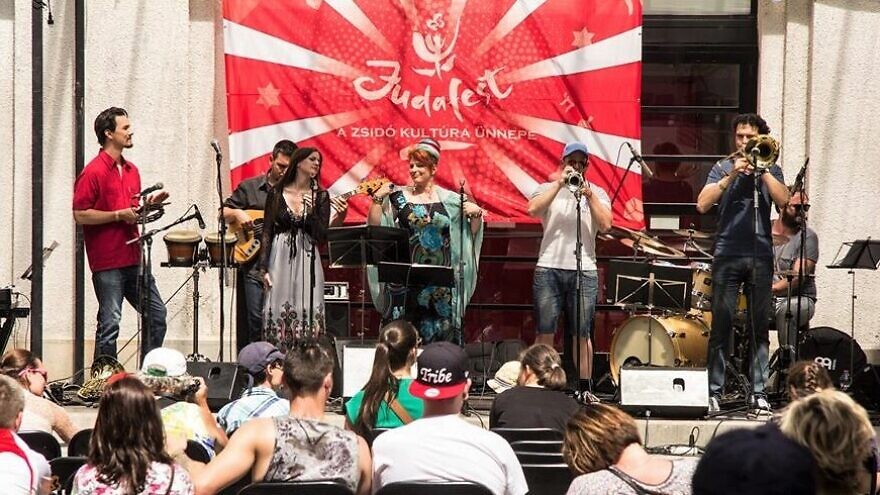Key findings of a new survey were released on Thursday by the American Jewish Joint Distribution Committee’s International Center for Community Development (JDC-ICCD).
The Fifth Survey of European Jewish Community Leaders and Professionals was conducted between April and May, offering insight from more than 1,000 European Jewish leaders and professionals.
Participants were drawn from both Western (829) and Eastern Europe (225). Countries represented were Austria, Belgium, Bosnia and Herzegovina, Bulgaria, Croatia, the Czech Republic, Denmark, Estonia, Finland, France, Germany, Greece, Hungary, Ireland, Italy, Latvia, Lithuania, Macedonia, Montenegro, Netherlands, Norway, Poland, Portugal, Romania, Serbia, Slovakia, Spain, Sweden, Switzerland and the United Kingdom.
Younger respondents feel less threatened by anti-Semitism, although they consider it important. Some 60 percent of younger respondents considered anti-Semitism “a very serious threat,” compared to 65 percent of those aged 41-55, and 77 percent of those aged 55 and older. The same is true of terrorism and violence against Jews (36 percent versus 46 percent versus 60 percent, respectively).
Still, these perceptions are not necessarily coupled with the idea that Europe is no longer a safe place for Jews. Most respondents answered the question, “To what extent do you feel it is safe to live and practice as a Jew in your community today?” by stating that they do feel secure with 78 percent reporting feeling safe (17 percent “very safe” and 61 percent “rather safe”). Only 17 percent felt “rather unsafe” and 6 percent “not safe at all.”
Similarly, a majority of respondents (67 percent) are not planning to emigrate with 71 percent satisfied with their government’s response to Jewish community security needs.

Anti-Semitism aside, the major threats to the future of Jewish life that were identified were the alienation of Jews from communal life (70 percent); lack of renewal of Jewish organizations (69 percent); and lack of engagement by members in community affairs or activities (68 percent).
When asked about financial losses due to the coronavirus pandemic, Eastern Europeans identified three main sources: dwindling tourism (28 percent), decrease of the donor base (24 percent) and lost income from real estate (23 percent). Western Europeans attributed the loss of income mainly to lower contributions by members (32 percent) and a decrease in the donor base (28 percent).
Thinking ahead post-pandemic, respondents ranked the three highest priorities in relation to community sustainability and engagement: 1) developing outreach strategies towards non-members/new target groups; 2) recruiting new volunteers; and 3) investing in leadership development. These rankings echo the survey findings on future community priorities.
When it comes to Israel, younger respondents (aged 40 or less) share different perceptions of the Jewish state and support for it as a community priority: 66 percent of respondents aged 40 or less felt that “Israel is critical to sustaining Jewish life in Europe” as compared to 78 percent among those aged 41 to 55, and 86 percent among those aged 55 and older.
For the statement, “I support Israel fully, regardless of how its government behaves,” respondents polled similarly: 51 percent versus 65 percent versus 71 percent. For “all Jews have a responsibility to support Israel,” they polled at 60 percent, 72 percent and 80 percent.
For respondents up to 40 years old, supporting the State of Israel was considered the least important community priority out of 18 items presented.
“Despite a long-held narrative of decline in Jewish Europe, the findings reveal a leadership that is engaged, staying put and serious about building for the future. By digging deep on these priorities and concerns, we can partner better and together build Jewish communities that are safe, strong and harnessing the talents of those not yet involved in Jewish spaces,” said JDC CEO Ariel Zwang.


























